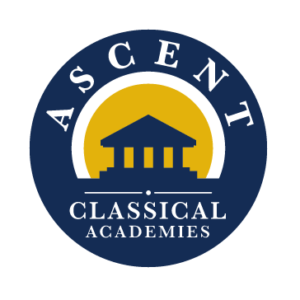At a time when good news seems hard to come by, I want to take a moment to highlight a few of the positives that we, as a classical learning community, can hold on to and cherish even during this difficult time. While this is not how any of our students and families imagined spending the last several weeks of their school year, it is important to recalibrate our perspective and take stock of the ways in which our students, teachers, and families continue to be strengthened and blessed despite our current state of affairs.
Classical education takes seriously the building up of virtues, molding and shaping of character, and fomenting sound habits of mind within its students. This is an important element of a proper education because we know that students will encounter challenging circumstances throughout their lives. And while the school setting is where these things are studied, they are meant to be practiced in all areas of our lives. What we are living through is precisely the type of unexpected and turbulent moment in which the properly educated are uniquely built to withstand and to thrive. Because the bulk of our life is spent outside of a classroom, a proper education prepares us for these times and provides us with equipment for living. C.S. Lewis spoke of the virtue of courage as, “Not simply one of the virtues, but the form of every virtue at the testing point.” Similarly, Aristotle called courage, “The first of human qualities.” Although we did not seek it out and we long for the day this is all over, we have nonetheless been given a platform upon which students can practice virtues, such as courage, which have been impressed upon them within the classroom.
Despite the shortcomings of our current delivery method, there are many other valuable, even vital, lessons and skills that can be practiced and refined. As a classical school, we understand that the written word is sacred and that much learning is accomplished through diligent, concentrated, and isolated study with the greatest thinkers of our Western Tradition. In fact, many of our most revered thinkers were largely self-taught through reading, writing, and personal reflection. The opportunity to realize the joys of uncovering truth in quiet contemplation, absent a teacher, is invaluable and will serve our students well through a lifetime of academic and personal educational pursuits.
Students are also having to practice time-management skills. Being taken out of their routine, students must organize their time and workload around new temptations and new realities of their household. Students are now responsible for managing and breaking up large quantities of work and longer-term projects. While this is certainly a frustration and a hurdle in the present, it is a ubiquitous feature of adult life and thus a useful experience.
It is difficult to see the goodness that can come from perilous times, yet history has taught us that some of the most beautiful acts of courage and selflessness are borne of occasions such as these. I have personally been touched and strengthened by the countless stories of generosity and selflessness that I have witnessed during this crisis. In his masterpiece, Fellowship of the Ring, J.R.R. Tolkien spoke beautifully about the human capacity for love to shine brightest in our darkest hours, “The world is indeed full of peril, and in it there are many dark places; but still there is much that is fair, and though in all lands love is now mingled with grief, it grows perhaps the greater.”
Now is a time to focus on what we gain rather than what we lose through our current mode of instruction. We understand that the beauty of our content loses a valuable component when we are forced to study apart. There is a sense of community and a shared mission and vision that cannot be replicated by distance learning. However, I would encourage parents and students to embrace this time together and the lessons that can be learned.
